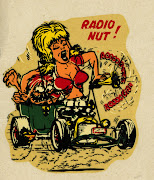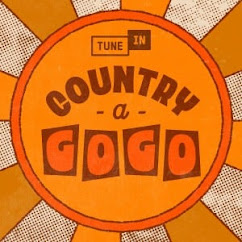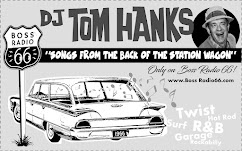RJ Smith's James Brown biography, The One, was published in March by Gotham Books. James Brown's life is so large and complex that making sense of it is a lot like staring directly into the sun (which is why we've taken such a scattershot approach to celebrating it this month on Ichiban) but Smith manages to hit all the major points (the music, the ego, the dancer, the ego, the politics, his disturbing relationships with women, the ego, his dictatorial relationship with his bands, his worldwide social impact, the drugs, the ego) in a compelling and fascinating way. In this e-mail interview Smith discusses some of the more obscure parts of the book and some of the events and people from JB's life that there was just no room to fit into The One. The interview ran longer than a JB single from 1969, so we're splitting it up into three parts, just like Hot Pants. Catch the first flipside tomorrow!
ICHIBAN: What inspired you to spend this much time writing about James Brown? Was there an initial point of revelation that connected you to him as a subject matter?
RJ SMITH: The first connection I had with him was when I was growing up in Detroit in the late 60s and early 70s. That of course was Motown country, and Top 40 radio was laced with bubblegum, “The Sound of Young America” and local garage rock and then ... you encountered ... the scream. That scrofulous shout that just shredded everything on the air. I don’t even remember what song I heard first, or any song at all, I just remember the noise of his voice, and I was interested.
After that, well he just seemed more interesting, and confusing, and larger than life than about anybody else I can think of in life. I mean this guy just talked and talked and talked, and he kept getting more mystifying while he kept speaking these deep truths in broken poetics. What kind of life was this? If you are gonna live in somebody’s head for four or five years, may it be as interesting as this one.
 |
| talkin' loud and sayin' somethin' |
ICHIBAN: Your technique of grounding the various eras of James's bands by focusing on the drummers really tied the disparate elements of his career together. When did you decide this was the way to go?
RJ SMITH: There were so many amazing musicians in that band, how do I give them credit without overwhelming the story I’m trying to tell? You need this CNN crawl across the bottom of the page flashing all these folks names as you read about the records. But then, if I start naming people, it’s hard to do it part way, there will be reader’s who quite rightly ask, where’s Sugar Pie DeSanto, where’s Country Kellum, where’s the Dapps, right? Reasonable questions, but there’s so many great players – they need their own book. I started thinking about the drummers as a way to at least symbolically nod in the direction of the whole unit, and then the more I thought about rhythm at the core of his sound, and Southern-if-not-New Orleans rhythms in specific, the more reasons I had for focusing on the drums.
 |
Give (some of) the drummers some!
Jabo Starks, Clyde Stubblefield, Melvin Parker, Clayton Fillyau |
How do you view JB's artistic career arc? Modern consensus seems to make the 60s a long slow build to the apotheosis of the early 70s with the Bootsy version of the band, and that was the artistic peak. But in the 70s, critical consensus put his peak more in the late 60s, but this was before the importance of funk music was really understood. I guess my question is: Is, say, Sex Machine a more radical artistic breakthrough or amazing piece of music than, say, Live at the Apollo?
Probably – this is the baby boomer divide with JB, whether you think Live at the Olympia is better than Live at the Apollo. That early 70s outpouring with Bootsy and the other iterations of the JBs and assorted projects of this era is singular. Those funk records are so deep, and Brown was just popping them out like beads of sweat, it’s pretty unprecedented. It was this whole new genre of sound for a while that mostly had only itself to refer to, and then it started touching other musics. We still haven’t gotten to the bottom of this era. I sure would love to hear rehearsal tapes, or to have been a fly on the wall when the JBs got together in the studio – how did they talk to each other, how did they establish a bass line, etc? It seems so complicated and hard to assemble, but they had to be laying it down pretty quick and on the fly.
or
 |
| What says you, Ichibunnies? |
Syd Nathan [head honcho of King Records and frequent JB financial sparring partner] and James Brown would have probably made one of the great comedy duos; their relationship seems so contentious and codependent. I was surprised to learn that Brown was a pallbearer at Nathan's funeral - were they closer than their antagonistic reputation lets on? Did they have a genuine friendship or was it strictly business? And did Nathan EVER like anything JB did, besides make him money?
There’s a great story Syd’s nephew told me about James putting a Mezuzah around his neck whenever he had to get something from Syd, because who knows, it might help somehow. Syd never totally saw talent on its own terms – money shaped his view of a great many things. But I am sure he understood how special James was. He had to have. Syd liked the way “No” sounded, but at some point he learned that telling James “No” lead to great things down the road. Doesn’t a great comedy team need contrast? These two were like Redd Foxx and Slappy White together, but with two Redd Foxxes! They were so much alike, I think they totally UNDERSTOOD each other and fed off the mirror image they found in their competitor. Part of what encouraged Syd to stick it to James every chance he got was that he felt he had to keep the guy in check. When Charles Spurling told me he was hired in the late ‘60s at King (besides his considerable musical value) to be pure thug muscle to push back at James, it totally made sense.

SYD NATHAN: Give the drummer some . . . money!
The stories in The One about tent show culture and its influence on Brown in the 50s was very interesting, particularly the contrast between the Daddy Grace religious version of a travelling tent show and the Esquerita/Little Richard nascent drag-queen version. Do you have any more anecdotes about either or both of these traditions and what JB took from them?
Hats off to The Hound there – he’s really blazed the way in chronicling the whole gay tent show masquerade culture in the South. I keep telling my academic friends there’s a lot to write about here, but so far nobody’s dug in. I wish I understood better the sexual identity dynamics of this phenomenon. How did James Brown become not quite a part of this scene, but cognizant of its stars – Billy Wright, and of course Little Richard, probably others too – and how did he think about the queer undertow (and text) of this scene? The “Man’s Man” dressing like Little Richard, and walking down the same streets of Macon. How did that play itself out in daily life, and what did people say about Brown, and what did Brown do when he heard it?
As for Daddy Grace, any chance I can take to write about him I will totally go for it. The guy is one of the great American stories, and I am convinced he had a crucial imprint on funk (through the drumming and bands in his church) that has yet to be fully understood. So many cool things happen in tents, we definitely need more tents in America today.
 |
| Sweet Daddy Grace - GIVE THE PREACHER SOME! |
Tune in tomorrow for James in jail, the Dapps, Bobby Byrd, "There Was a Time" and the return to the Ichiblog of Soul Brother #? - Mr. Joe Tex!

































+-+Prisoner+Of+Love.jpg)
























